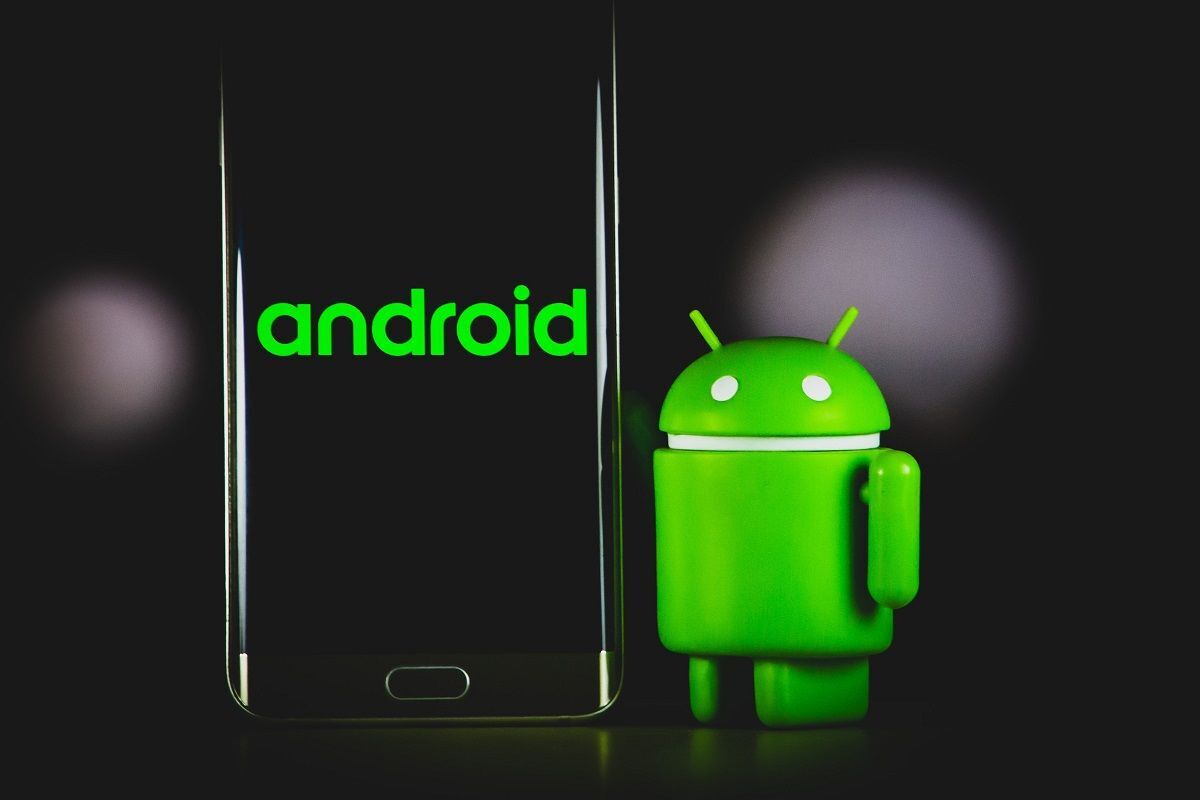Call me crazy, but I don’t want a PC run by a phone operating system.
You’re crazy.
:(
They’re not saying it will. My gaming laptop is already running the same Linux kernel as Android phones so the kernel is great. Then it’s down to the GUI and that might be a good fit for hospitality/healthcare/retail as the article says where some devices are already run in more or less of a Kiosk style with specific purpose. Besides phones are just small PCs anyway, it’s all about the use-case.
deleted by creator
That’s a really really really bad comparison.
Separating the base system and user installed apps is a good thing for security.
Having flatpak smooth over distro compatibility issues is great.
Locking down a platform to an app store is not.
There are also ways to change the base system still. It’s just the model is to do the ideal thing, which is to install the apps designed into the modern system.
Options are never gonna be a bad thing of course.
Idk of flatpaks can really be compared to iOS apps just simply due to how much you can choose to expose
deleted by creator
Linux users would quite literally laugh about this, yet here we are.
Well, Immutable Distros aren’t for “Linux Users”, but for casuals. I won’t ever advice any techblin to use a classic distro, because they don’t have any interest in learning commands and terminal, but just want to use something that’s not Windows
I prefer gentoo personally
Its an OS, period. Like in every other context it’ll be adapted to its use case. Its unrealistic to think that its going to look like a phone/tablet. Android is and had been running on a hell of a lot more than phones for a very long time now, and most people dont even realize it.
I’ll agree with you as an advanced user myself it most likely won’t be for me either, but we’re not the 99%. The normies benefit from more locked down ecosystems and especially immutable OS’s.
I just spend 3hrs literally yesterday in my mothers OnePlus unfucking it, she’s only had Androids since she’s owned smartphones, yet cant understand Android and actually how to use it, never knows what she does, constantly turns things on and off, shit you CAN’T accidentally do. Non tech people and functionality/control over the OS is never a good thing.
MDM managed devices would make situations like your mother’s much easier to manage and handle remotely. Lock down all the stuff she keeps messing up. Id love to have hardware that I could walkaway from that was cheaper than apple and had management like it when using an MDM like Jamf.
Why though? Immutable Operating Systems are great for regular usage. Android is restricted and closed up, compared to Linux or Windows. But its damn secure.
Having the app support, on this ecosystem where every app always is in its container, would be huge.
But I prefer Fedora Atomic, its more or less the same, but actually free, with wide app support and no Google.
Because I do all kinds of things with my OS that they probably didn’t consider when they were locking things down. I enjoy the freedom and flexibility of a desktop OS while I’m on a desktop. Even Mac OS drives me up the walls sometimes.
Edit: phone changed Max to Max.
Yes of course, me neither. Android sucks. Its locked down and all.
But what is the typical “laptop user”?
- uses windows as it was preinstalled
- uses Edge or Chrome as its preinstalled, Bundleware or they get Ads for it
- has some weird Adobe stuff like Reader. Apps autostart in the background and phone home as they wish to “check licenses” and whatever
- has Viruses and doesnt care
Viruses basically dont exist on Android
Well yeah… We are not saying is for everyone. Like it’s nice for less technical people were it’s more difficult for them to fuck it up or get confused with technical stuff and they do not need anything advanced or sometime that flexible, just a couple of apps an a browser.
Yeah it would probably be great for someone like my mother. She’s an expert at breaking her operating system and anything to lock her system down would be helpful. I’m sure there are millions of people who never do much more than read emails, browse the web, and maybe do some spreadsheet work, and it would be great for them too. For me, I like control. I use Arch on my laptop and Pop on my gaming computer so that I’m not constrained by whatever Microsoft or Apple are currently trying to simplify with their OS.
Edit: I also stopped using Windows because it’s becoming pretty similar to spyware and adware these days, and every time you turn all that stuff off, they turn it back on with the next update. I reached my wits end about 3-4 years ago and dumped Windows completely for everything except Fusion 360.
That sounds like a lot of FUD.
somewhere tim cook is crying
You mean Tim Apple?
Phones are pcs so I don’t see the issue
The problem I see with this is that Linux doesn’t do well enough as it is so fragmenting it further isn’t going to move the needle against Windows (IMO)
You don’t use a phone the same way that you use a PC, or at least I don’t.
A lot of people do though. That’s the problem. Most people just browse Facebook and watch YouTube. Anyone doing other stuff is “a hacker”
That’s not going to matter as far as the OS is concerned; that’s more device limits
Believe it or not Android is solidly capable as an OS without too big of a hardware requirement. Give Android x86 a shot and you’ll see how fast it can be. Pretty decently optimized. Sadly last Android the supported was 11.
Man, that title sure is clickbaity
deleted by creator
Double biggest. Fail. Shoulda been tighter, that’s just lazy. Everything after the emdash is pointless anyways, Google cut the title much earlier. Another fail.
It’s clickbait, you got that right, but it’s super sloppy.
Esper Foundation is based on Android 11 and has customizable branding, peripheral compatibility, quarterly security patches, and three years of support.
3 years worth of support on an OS that’s already 3 years outdated. Meanwhile my PC from 2010 running Windows 10 still gets updates and can easily be updated/serviced with off the shelf parts to keep it going. I guess I’ll pass on this one.
from all the shit that windows do, long term support was always a selling factor in there
And don’t forget that Google is pushing to restrict Android just like iOS where if you unlock the bootloader and root, SafetyNet fails and apps stop working, while in windows having admin accounts is normal.
I tried to read deep into this awhile back and why we don’t see many Android tablets. I think even Google (Alphabet) doesn’t like Android that much and is trying to get away from it. And instead use ChromeOS for laptops, tablets, and dual use devices.
What’s looking better all the time is just Linux. Really they should just put out a Linux laptop.
why we don’t see many Android tablets
My personal guess is that the reason is twofold:
- The dominance of iPad
- The (unfortunately not unearned) association of Android tablets with poor quality. There are a lot of knockoffs out there.
I think even Google (Alphabet) doesn’t like Android that much and is trying to get away from it.
In the large format world, maybe. But they’re putting a lot of development work into the Pixel line, and it’s finally paying off. I wouldn’t be terribly surprised to see a resurrection of the Pixel C form factor someday.
I think a large part of it is that they have little control over Android. Manufacturers put all their stuff and overlay on it. Imo it doesn’t work well and would be even worse with dual use and laptops. They have control of ChromeOS and make demands of anyone that wants to use it. I think they made a big mistake getting rid of Moto. They could have at least made their own devices free of other stuff.
ChromeOS is as open source as Android in the form of ChromiumOS. It just seems like there’s less desire to fork ChromiumOS and skin it since Linux already exists, and I assume most people would prefer to go to the source.
I agree that they should’ve kept Moto, but they do make (well, design, which is probably all Motorola did) their own handsets in the Pixel line. Pretty much everyone who puts their own badge on a phone these days designs it but has Foxconn assemble it using components sourced from other companies. The only company I’m aware of making their own silicon is Samsung.
It’s not even knockoffs, my last two android tablets were trash. Asus; poor physicsl quality, bad audio driver, screen connector fails with slight flexing, silver detailing full of chips. Samsung; full of bloatware, super slow, drops inputs regularly, sometimes takes seconds to react. Both cost more than twice as much as my first tablet from 2013, both ran worse out-of-the-box than my first tablet still does today.
Google tablets being filled with magnets has always been interesting to me, and I really like how they create interesting use cases (like sticking your tablet to the fridge)
Is…Is this finally the year of the Linux desktop?
I’m gonna say it.
2023 is the year of the Linux desktop!
I’m all for this if it’s true, but this sounds like another gimmick announcement by a declining PC vendor.
Declining? It might look like that if you expect nonstop continuous growth, but Lenovo has been stable and has held onto its 25% market share for the past five years.
That site might ask you to login, so here’s a screenshot.
I’m posting from Kbin, not sure if the image will embed, so here’s a backup in case the embed is borked: https://i.imgur.com/vL23xe4.png
Odd, I don’t even see anything indicating you tried to embed.
Here’s the markup for lemmy embed ʼʼ

Huh, I think this might be one of those unique Kbin things. We have an image upload feature that treats it sorta like an attachment; it doesn’t embed the image in the comment, rather it appends the image at the end of the comment.
This is what it looks like over here
Thx for the markup tip!
Oh interesting. Yeah, we don’t have that here.
You clearly don’t work in an office. They have that market cornered, Lenovo laptops are everywhere.
That is true… Been working full remote for the past year.
Lenovo is the biggest PC vendor in the world, also Motorola by Lenovo is still doing pretty well, I wouldn’t call them declining by any means.
Lenovo? The spying hardware company? No thanks.
Man, I thought you had them confused with some other company, then I looked them up on Wikipedia. That’s some shady stuff they’ve been up to.
Wait what, weren’t the thinkpads supposed to go hand and hand with Linux, what do you mean?
The older Thinkpads do. The newer ones are just money-grabbing chinesium.
Iirc, the business line (ThinkPads) were not affected by these, but who knows.
But yes, my oldest laptop is a ThinkPad and I love it very dearly!
Remember, everyone: companies work hard to prevent “unauthorized access” to their devices. This does not mean no one can get into your stuff. It means no one can get into your stuff without paying the manufacturer money first.
I don’t think that will plan pan out. ChromeOS is even getting gpu support and can run games via proton
It’s also hard to overstate the advantage ChromeOS has that we can’t even see yet. Chromebooks absolutely dominate the K12 educational world, and students are graduating every year and going into jobs where they’re more familiar with ChromeOS than anything else. If enterprise customers switch in large scale to anything, it’ll be to ChromeOS.
This is very true. ChromeOS will likely win out in the long term. But in the short term, it’s good for Google to have competition to goad them into improving and innovating.
At the same time though, I’m not sure whether Lenovo’s solution targets the same audience.
“The Esper solution is an android based software, it is specifically formulated for device management on an android OS running on an x86 platforms. This creates a unique opportunity for Lenovo to address this market. Specific market segments we are targeting include retail and hospitality, as well as the digital signage appliances for these industries. These segments include an abundance of Android based deployments that require a level of customization.”
I don’t think ChromeOS allows really any customization of its UI, does it? I haven’t used it in any significant capacity in a decade… (I wrote the original Chromebook Ninja call center scripts back when it was literally just a web browser on a laptop lol.)
Absolutely competition is a great thing.
And you’re right, ChromeOS is pretty uncustomizable. I think they might have dark mode now.
I’d argue that ChromeOS only succeeds at funneling kids into Google’s browser products, not keeping them in ChromeOS. Because you can get basically the same experience on any PC, whether it’s running Windows, MacOS, or Linux.
Once kids grow up and get a job, they run into the limitations of ChromeOS pretty fast and swap to something with a real OS. Unless they’re at a company that exclusively uses browser-based tools without any desktop apps or plugins, which is pretty rare IMO.
Unless they’re at a company that exclusively uses browser-based tools
It doesn’t necessarily need to be an entire company. It can easily just be a division or a department. Sure, you can’t easily migrate engineering or design roles to a browser-based system; but Sales, Marketing (except design), Writing, Management, Strategic Planning, HR, Finance, Accounting, and Administration are just some departments that can be entirely or nearly entirely cloud-native (and in many cases already are).
I’d argue that ChromeOS only succeeds at funneling kids into Google’s browser products, not keeping them in ChromeOS.
But when management discovers that they can reduce IT hardware costs by 50% or more by switching to a platform that their younger employees already know, they’ll probably start doing it.
The world is heading back in the direction of thin clients, honestly. But in this new thin client world, the browser will be the only thing on the bare metal.
What you’re proposing is definitely possible, but I don’t see it happening any time soon. Partially because people just aren’t interested in going there, and partly because Chromebook hardware tends to suck. Also, Chrome is bloated as hell on its own, you need at least 16GB of RAM to open up more than a handful of tabs 😆.
Plus, Chromebooks have ALREADY been around long enough for this to happen. The first Chromebook was sold in 2011! And in the 12 years since, Chromebooks have dominated the middle school market, of course. But they’ve managed to take approximately 0% of the market in the professional space. Even college kids don’t use Chromebooks, it’s all Macs and PCs.
At this moment, Chromebooks are for middle school kids, and also sometimes for casual home users. Not saying they can never be anything else, but that’s the current reality.
Like any computer, Chromebook hardware sucks if you’re buying entry level sub-$500 devices. The reputation for shitty hardware is generally from people who have only used entry level devices
Our standard fleet for our teachers is Acer Spin 513-2WH. They’re exceptionally nice
Sure, but if you’re spending a thousand dollars or more on hardware, you might as well get a Mac or PC that can run more apps. That’s the reason people buy the shitty sub-$500 ones: because it ain’t worth a thousand dollars if you can’t run (insert industry-specific app here).
We’re CLOSE to the future you envision, where everything is just a SaaS browser-based tool. But I don’t think we’re there yet, there are just too many exceptions for most businesses to go all-in on Chromebooks. I work for an MSP with a relatively diverse clientele (Mac and PC), and schools are the ONLY clients that use Chromebooks.
You’re preaching to the choir, lol. I’m just saying the hardware on non-entry Chromebooks is outstanding these days. Everything else is a matter of time & licensing
The only problem with chromeos is its file manager that is not very user friendly. Any linux file manager ported to chromeos would be welcomed
Specific market segments we are targeting include retail and hospitality, as well as the digital signage appliances for these industries.
It doesn’t look like they are going to release it for general consumers at all, I think they specifically designed it to meet a very niche need to control apps for interactive menus and billboards on various commercial displays without having these apps being controlled by a tablet in the backend.
Retail and hospitality also means aiming at thin clients. Thin Client: barebone PCs whose entire function is to load a browser and connect to a server or service like Citrix to do anything of value.
I’ve heard those claims before…
Anything that makes operating systems more open and free I’m all for.
Unfortunately Google Play services exist, but still.
Isn’t this just an android tablet with a keyboard and mouse?
Unlikely
Until you can hover on Android with a mouse, nope.
I remember being able to do that in 2016 on a Motorola Phone.
Yep, android has mouse and keyboard support. Just grab an OTG cable and go.
It’s not the same. I use a Tab S9 and Duet a lot, and while Chromebook has good mouse hover actions and “full chrome” with right/middle click, etc, Android is severely lacking. It’s amazing how helpful a cursor that changes when you hover is on a desktop site.
A lot of those behaviors are added by the design/devs because they expect you to use a mouse on the web apps. But for android apps it’s just assumed that everyone will use touch. Sometimes I’ve seen UXs achieve this behavior with a long tap, but that takes away the “right-click” behavior.
Oh agreed, but until they’re implemented in apps via an OS hover layer, Android won’t work as a desktop replacement. Unless they can change a universal user behavior, which is possible, but not likely as a non-dominant desktop OS.
Hover over what exactly? What precisely do you need to pop up for to explain what it does?
Mouse hovers are used for a lot of things. Seeing the full URL in a status bar, determining if text is a link when the cursor changes, image hover display, displays in desktop pages that show when hovering, on and on. I use Android daily on a convertible tablet, and I much prefer the Chromebook, the hardware on the Tab S9 is what keeps me here.
Ah yeah I hear ya. Those are definitely useful functions. I love my Chromebook as well.
Unless it can run x86 windows application natively otherwise I’m not interested
Well I think you’ll never be pleased with a platform like this, and you’re probably not the target audience.
“unless it does something it’s not supposed to do I’m not happy”




















